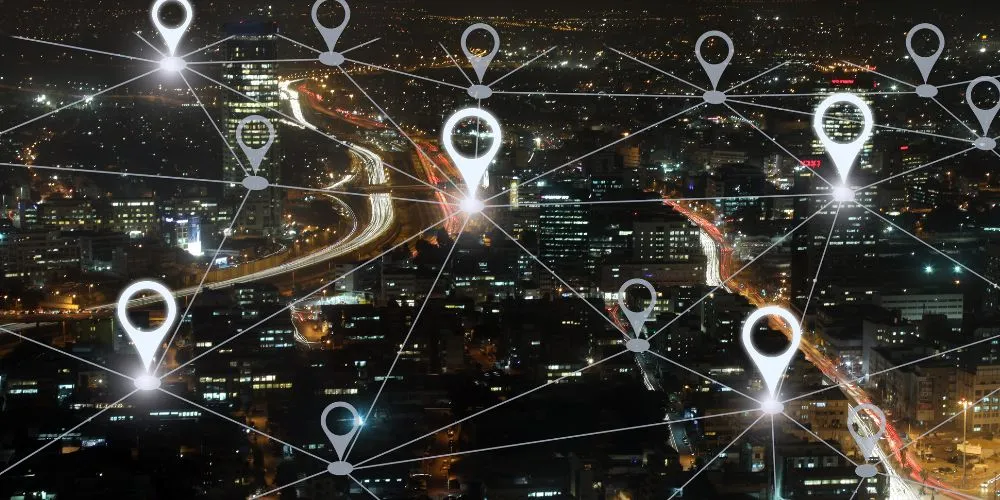GPS Navigation technology has transformed how we navigate our world, offering precise and efficient guidance for many applications. This comprehensive exploration delves into the intricacies of GPS Navigation, unraveling its fundamental principles, key components, recent innovations, notable applications, and the transformative impact it has on the way we travel and explore.
Understanding GPS Navigation
GPS Navigation is the backbone of modern navigation systems, providing real-time positioning and route guidance. At its core, this technology involves a network of satellites, ground stations, and receivers to accurately determine and communicate the location of devices equipped with GPS receivers. GPS Navigation’s evolution has transformed how we navigate, making it an integral part of various industries, including transportation, logistics, and outdoor recreation.
Key Components of GPS Navigation
The core components of GPS Navigation contribute to its functionality, precision, and overall performance.
- Satellite Constellation: A network of satellites orbiting the Earth forms the satellite constellation. These satellites continuously transmit signals that GPS receivers on the ground use to calculate their precise location.
- GPS Receivers: Devices equipped with GPS receivers interpret signals from satellites to determine their exact position, velocity, and time. These receivers are integrated into various devices, including smartphones, car navigation systems, and wearable gadgets.
- Control Segment: Ground-based control stations monitor and manage the satellite constellation, ensuring the accuracy of the signals transmitted to GPS receivers. This control segment plays a crucial role in maintaining the integrity of the entire GPS.
This intricate interplay of satellites, receivers, and ground control stations allows GPS Navigation to provide accurate and reliable location information, enabling users to navigate confidently.
Recent Innovations in GPS Navigation
Recent innovations have propelled GPS Navigation to new heights, addressing key challenges and expanding its applications.
Augmented Reality Navigation
Integrating augmented reality (AR) in GPS Navigation enhances the user experience by overlaying digital information onto the real-world environment. AR navigation directly provides visual cues, directions, and points of interest in the user’s view, making navigation more intuitive and user-friendly.
Real-Time Traffic Data
Incorporating real-time traffic data into GPS Navigation systems allows users to receive dynamic route adjustments based on current traffic conditions. This innovation optimizes travel time and minimizes congestion, providing more efficient and stress-free navigation.
Indoor Positioning Systems
Beyond outdoor navigation, GPS technology has evolved to include indoor positioning systems. Utilizing a combination of GPS, Wi-Fi, and Bluetooth signals, these systems enable precise navigation within large indoor spaces such as shopping malls, airports, and convention centers.
These innovations enhance the accuracy and efficiency of navigation, thereby improving the overall user experience and making GPS Navigation an indispensable tool in various scenarios.
Notable Applications of GPS Navigation
GPS Navigation extends beyond traditional map guidance, contributing to various sectors and enhancing our daily lives.
Automotive Navigation
GPS Navigation has become a standard feature in the automotive industry in modern vehicles. Integrated into navigation systems, it provides turn-by-turn directions, real-time traffic updates, and points of interest, enhancing the overall driving experience. Whether navigating unfamiliar city streets or going on a road trip, GPS Navigation ensures a smooth and informed journey.
Outdoor Recreation
Enthusiasts of outdoor activities rely on GPS Navigation for hiking, camping, and geocaching. Handheld GPS devices and smartphone apps with detailed maps and trail information ensure a safe and enjoyable outdoor experience. Accurate positioning and trail guidance make GPS Navigation an essential companion for adventurers exploring diverse terrains.
Logistics and Fleet Management
GPS Navigation is critical in optimizing route planning, tracking shipments, and managing fleets in logistics. This application enhances efficiency, reduces fuel consumption, and improves logistics operations. Whether delivering packages or managing a fleet of vehicles, GPS Navigation streamlines processes and contributes to the overall effectiveness of logistics management.
Emergency Services
Emergency services utilize GPS Navigation for quick and accurate location information. It aids in efficient response times during emergencies, rescues, and disaster management. GPS Navigation ensures that first responders can navigate swiftly to the exact location of an incident, potentially saving lives in critical situations. These diverse applications showcase the versatility of GPS Navigation, demonstrating its impact across different industries and aspects of daily life.
Challenges in GPS Navigation
While GPS Navigation has witnessed significant advancements, several challenges persist, impacting its accuracy and reliability.
Signal Interference
Signal interference from tall buildings, dense foliage, and adverse weather conditions can affect the accuracy of GPS signals. Ongoing research focuses on mitigating these challenges to ensure consistent and reliable navigation. Developing advanced signal processing techniques and integrating alternative positioning technologies aims to overcome these interference-related challenges.
Cybersecurity Concerns
As GPS Navigation becomes more interconnected, cybersecurity threats risk location data integrity. Protecting GPS systems from unauthorized access and manipulation is crucial for maintaining trust in navigation technology. Ongoing efforts in developing robust encryption and authentication mechanisms aim to safeguard GPS systems against potential cyber threats, ensuring the integrity of location-based services.
Limited Indoor Accuracy
While outdoor navigation is highly accurate, GPS technology faces challenges in providing precise positioning indoors. Overcoming this limitation is essential for expanding the applications of GPS Navigation to indoor spaces. Research into hybrid positioning systems that combine GPS with other indoor positioning technologies, such as sensors and beacons, aims to enhance indoor accuracy and make GPS Navigation more versatile. Addressing these challenges will further strengthen the reliability and effectiveness of GPS Navigation, ensuring its continued relevance in diverse scenarios.
Future Trends in GPS Navigation
As technology advances, the future of GPS Navigation promises exciting trends that will further redefine the capabilities and applications of location-based services.
Integration with Autonomous Vehicles
The integration of GPS Navigation with autonomous vehicles is set to revolutionize transportation. Precise and reliable location data will be pivotal in enabling safe and efficient autonomous navigation. The synergy between GPS technology and autonomous vehicles will contribute to realizing fully autonomous transportation systems, reshaping the future of mobility.
Enhanced User Personalization
Future GPS Navigation systems are expected to offer enhanced user personalization, tailoring navigation experiences based on individual preferences, habits, and real-time context. Machine learning algorithms will analyze user behavior and preferences to provide customized route suggestions, points of interest, and real-time alerts. This personalization will make navigation more intuitive and user-centric, enhancing the user experience.
Multi-Constellation Navigation
Utilizing signals from multiple satellite constellations, such as GPS, GLONASS, and Galileo, will enhance navigation accuracy, especially in challenging environments where signal obstructions are common. Multi-constellation navigation ensures redundancy and improves the availability of accurate positioning data, making GPS Navigation more robust and reliable in diverse geographical and urban landscapes. These future trends highlight the evolving nature of GPS Navigation, paving the way for even more sophisticated and user-centric navigation experiences.
Conclusion
In conclusion, GPS Navigation stands at the forefront of modern navigation systems, guiding us through diverse landscapes and urban jungles. From automotive navigation to outdoor adventures and logistics management, the impact of GPS Navigation is far-reaching. Despite challenges, ongoing innovations in augmented reality, real-time data integration, and indoor positioning signal a promising future for navigation technology.
As research and development continue to push the boundaries of what is possible, GPS Navigation is poised to remain an indispensable tool, navigating us toward a more connected and efficient future. With the integration of autonomous vehicles, enhanced personalization, and multi-constellation navigation, GPS technology is set to play a pivotal role in shaping the way we navigate and explore the world in the years to come.





